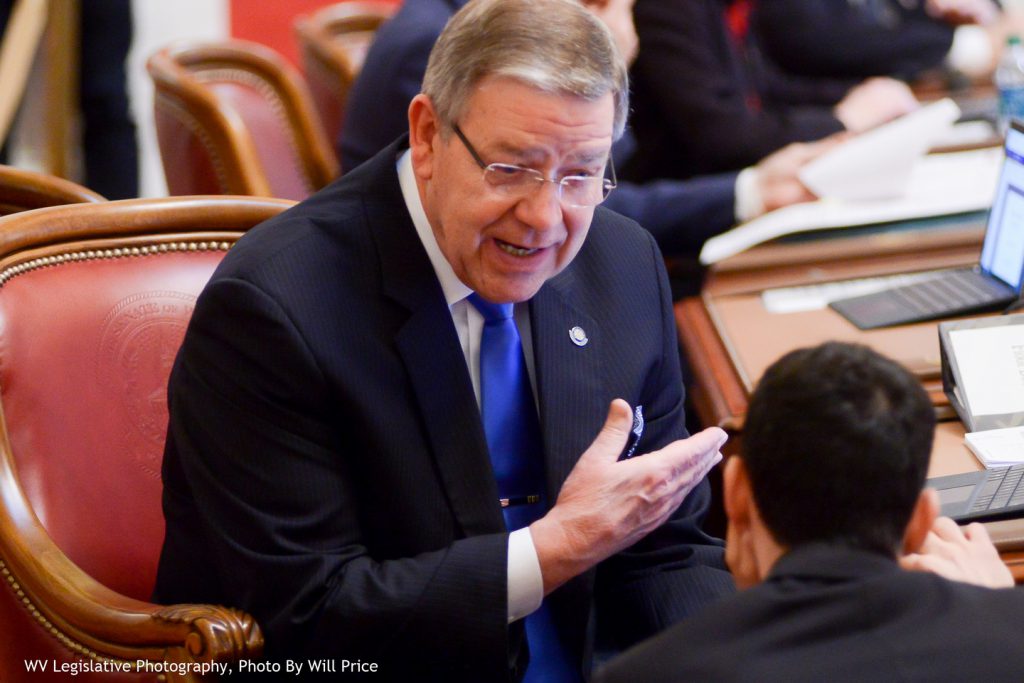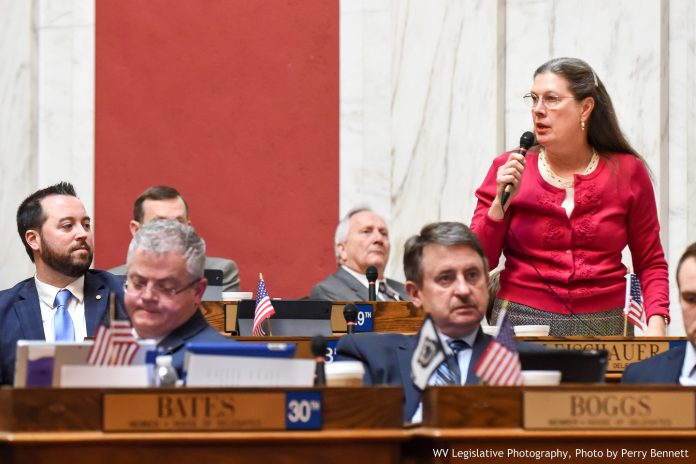Increasing Reports Shine Light on Issues
West Virginia legislators strive to create legislation to establish and strengthen criminal offenses relating to human trafficking. HB 2318 would create a felony offense of patronizing an individual to engage in commercial sexual activity. This is the third year legislation of its kind has been introduced in the state’s Legislature, because previous legislation had technical issues.
Human trafficking reports have been on the rise in the United States. Higher reports are related to hotlines and a textlines emerging to reach out to victims, as well as more states creating tougher penalties for the crime.

Sen. Ed Gaunch, R-Kanawha, sponsored similar legislation in the past.
“The topic has continued to grow in importance,” Gaunch said. “It’s a sign of our time, we all get comfortable in our surroundings and pretend it isn’t happening.”
Reports show there are between 20 and 30 million people enslaved in the world today. Eighty percent of human trafficking victims are female and 50 percent are children.
Gaunch said it’s affecting more and more people every year, and needs attention called to it while providing solutions like the legislation introduced again this year.
Human trafficking takes many forms: domestic servitude, forced labor, sex trafficking, bonded labor, forced marriage, and child labor.
Human trafficking is the third largest international crime industry, behind illegal drugs and firearms trafficking. It reportedly generates $32 billion a year and $15.5 billion is made in industrialized countries.
Delegate Barbra Fleischauer, D-Monongalia, is the lead sponsor on this year’s legislation, HB 2318.
“The thought is you can sell a drug once, but you can sell a person many, many times. It’s a very gruesome thought,” Fleischauer said.
Human trafficking is on the rise in West Virginia because the state is lagging in stronger laws related to the subject. West Virginia is susceptible to human trafficking because of its interstates, poverty and unemployment rates, drug issues, the number of children in foster care, and the number of children subject to abuse and neglect.
“We still have a long way to go, this is the first step in the process. We know of human trafficking cases, but haven’t had any prosecution,” Fleischauer said.
According to proponents of the bill, its passage would lead to more prosecutions related to this crime.
Fleischauer said the next step would be counseling for the victims.

